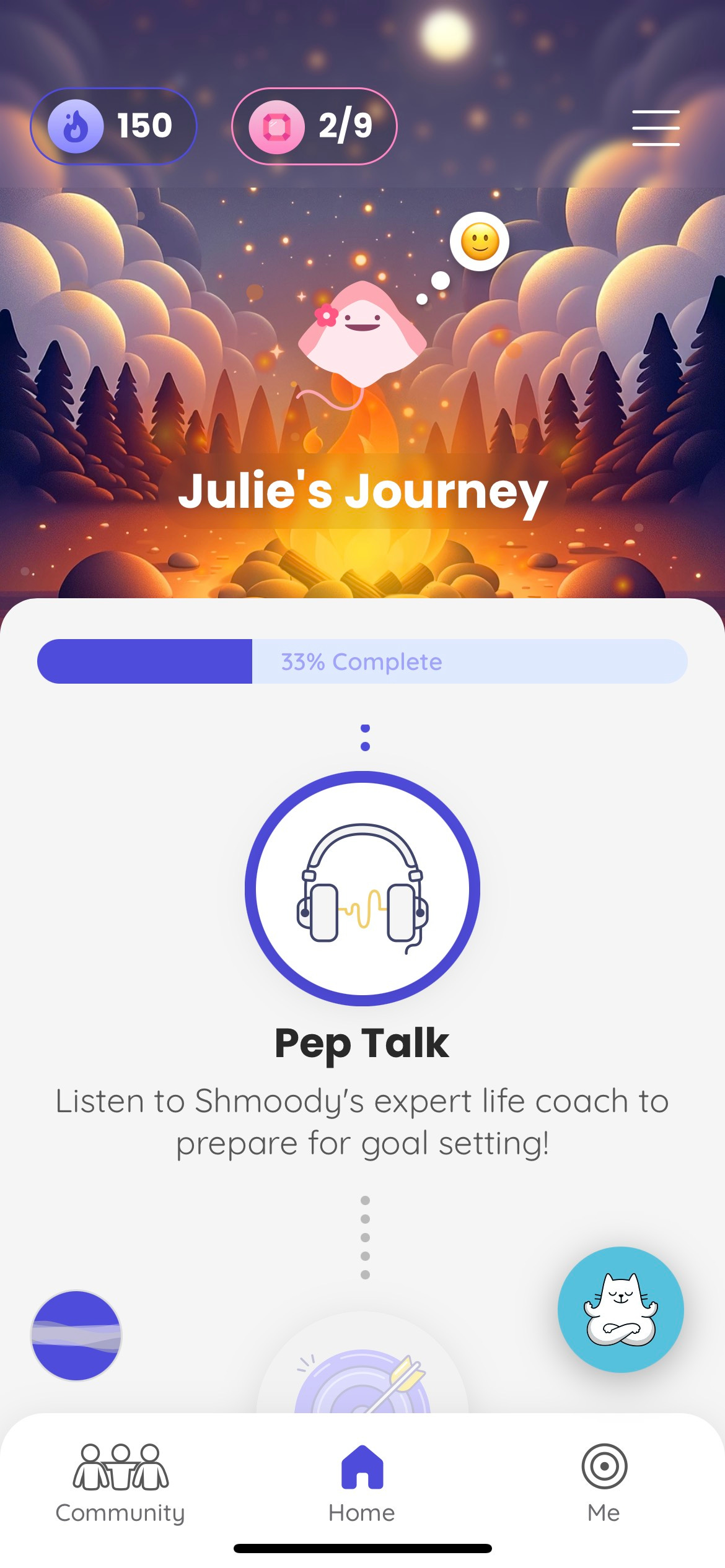Disclaimer:
In this episode of Unearthing Compassionate Tech, we dive into a thorough exploration of the Schmoody App with Julie Johnson, co-founder of the Integrate Trauma Informed Network. Julie offers insightful evaluations intended for educational purposes, reminding listeners that consulting mental health professionals is crucial for personalized support. Individual experiences with the app can differ, despite the expert insights shared by Julie Johnson and Danielle Allen.
We strongly encourage listeners to prioritize their mental well-being by connecting with qualified professionals. While this podcast provides valuable insights, it is not a replacement for professional mental health guidance. Protecting your mental health is essential, and seeking the right support is vital for overall wellness.
Podcast Contributors
Dani Allen, Digital Designer and Trauma Informed Coach
In this episode of 'Unearthing a Compassionate Tech' for the Integrate Trauma-Informed Network, Julie Johnson, platform designer and co-founder, reviews the Schmoody app. Schmoody is designed for individuals with ADHD, offering a minimalist, human-centered interface that emphasizes self-attunement and non-productive activities. Julie discusses how the app rates in terms of communication and trauma-informed decision-making, featuring elements like validation communication and mirroring activities. She introduces Danielle Allen's reflection, a trauma-informed coach and digital designer, who highly recommends the app for its empathetic approach and utility for her clients. The episode concludes with Julie promoting her weekly trauma-informed yoga classes.
00:00 Introduction and Host Introduction
00:14 Overview of the Schmoody App
00:36 App Features and User Experience
00:58 Podcast Structure and Co-Host Introduction
02:11 Human-Centered Communication
06:33 Trauma-Informed Decision Making
10:19 Danny's Reflection on the App
13:47 Conclusion and Additional Resources
Our Rating
40-60=An abundant amount of trauma-informed skills in the app features (4-6)
30-50=A mooderate amount of trauma -informed skills in the app features (3-5)
10-20-A modest amount of trauma- informed skills in the app feaures. (1-2)
Trauma-Informed Communication Skill Rating
Validation Communication: 4-6 (6)
Motivational Interviewing: 4-6 (6)
Aligning Words and actions. (4-6) (6) -Great Human Experience Interface for Customization
Presents media on learning to set boundaries (4-6) (6) In Chatbot with Schmoody the Cat
Used inquiry and curiosity within exercises, communication and overall (4-6) (6)
Trauma-Informed Communication Skills Practice
Presents body awareness prompts or activities (4-6) (4)
Facilitates exercises that help people discern a system of threat and safeness (4-6) (6)
Promotes personal agency and customization (4-6) (6)
Provides people to assess personal capacity (4-6) (6)
Offers space for people to make a plan for their wellbeing (4-6) (6)
Insights from Danielle Alan, Trauma-Informed Coach and Digital Designer
Shmoody is a total game-changer. It’s not the typical mental health app—no sterile vibes, no forced positivity. It’s real, relatable, and taps into what we actually need. What really drew me to the app in the first place—what enticed me to try it out and assess it—is how it seems to completely disrupt the self-help and personal development culture. Most apps are all about constant optimization—be happier, healthier, more productive—like you’re not enough as you are. They suggest this sense of lack with their guidance. But Shmoody’s approach is more grounded, more human. Unless it was an app that specifically marketed itself to be trauma-informed or human-centered, I haven’t seen any other tools that operate from that lens of relation, agenda-less, enough-ness. The features all seem to be hand-picked and uniquely wired to embrace and nourish your natural self, to connect with yourself at your own pace. Instead of forcing you onto a relentless dragon-slaying quest for improvement, fostering genuine self-awareness and a deeper connection to your emotions. They have a mood tracker which is very typical, but the way its use is framed is intentionally geared away from productivity or external achievement or all these harmful ideas of change that we’ve been conditioned to believe. Like, the other features are a joy list and an emoji-filled joy calendar, and binaural beats. Nothing to push you and instill shame—just guide, recognize patterns, and find joy in everyday life. To answer your question as to whether I recommend it to my coaching clients, I very much do recommend it. I’m a total fan-girl of anything that successfully makes mental health fun. But, I’ve actually, for a good chunk of my clients, made using Shmoody a routine part of their coaching program. It’s like having a handy Polly Pocket version of me that clients can carry around to like, the grocery store with them. It helps them understand their moods, spot their triggers, and figure out what genuinely brings them joy—without the pressure to “fix” themselves. And, by far the most invaluable feature, it helps draft boundary-setting text messages for hard conversations. Literally, life-saving (although it’s a paid feature, so hoping that they entertain some scholarships or wellness professional support plan). There’s only so much I can offer in 50 minutes of words, so I love anything that can be a tangible in-the-moment tool and extend the work we do into real life. And honestly, that’s been a self-care win for me too—fewer weekend crisis texts by default when they have Guru cat they can chat with for free


















Share this post